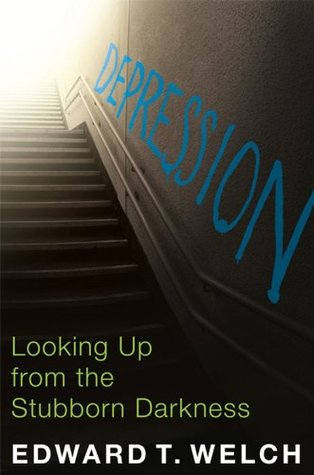More on this book
Community
Kindle Notes & Highlights
Etch this in stone: if depression gives you an early warning—and it usually does—bring everything you have to the fight. Take your soul to task. Ask for help. Force-feed yourself Scripture and words of hope. Be on guard against self-pity, grumbling, and complaining. And keep the cross close at hand. If you let depression run its course, you will soon lose your vitality; you’ll surrender. But with practice, you will notice that you have more resources than you thought to ward off the worst of the depression.
If you are willing to be trained by it, expect depression to be a good teacher. That doesn’t mean that you should seek it out, and it certainly doesn’t mean that you shouldn’t try to alleviate it. But most people who are willing to be taught by suffering look back and are grateful.
Suffering is a teacher. It taught Jesus (Heb. 5:8), and it can teach us. But it only truly teaches us as we fix our eyes on Jesus. If you avoid him in the midst of pain, expect to be embittered by it. But if you look to Jesus, you will no longer be alone. You will be strengthened, and you will be changed. Expect to say, “This is exactly what I needed. Through depression I have learned things about God and myself. It would have been nothing short of a tragedy not to have learned them.”
By now you understand that hope is a key issue in depression. The critical transition is from hopeless to hopeful. You also understand that God makes promises, and he is pleased when we anticipate their fulfillment. God prizes hope. It says to him that we will not try to find our homes on earth, but we will look forward to the very best—to find our home in his presence.
When you purposefully make God’s universal story your own, you will always be looking in two directions. You will be looking backward to the cross and looking forward to the time when you see Jesus, the object of your hope. When we look back at the cross we see forgiveness of sin, the love and generosity of God to sinners, the fact that we now approach God without fear, the righteousness we receive rather than earn. These and many other promises are “yes,” and they radically change the present. We can live as people who have been given a great gift, so there is a persistence of thankfulness
...more
Living means choosing, and choosing means running the risk of making mistakes, and accepting the risk of being guilty of making mistakes.4 The cross means that we have freedom to make mistakes.
Hope is a skill that develops over time. It is also a corporate venture that needs the reminders of the body of Christ. Commit yourself to a church where the story is told, and seek opportunities for daily reminders.
Every depressed person should set out to be an expert in joy. It is a no-risk proposition. The worst that can happen is that you will honor God (Ps. 126:1–2), be surprised that he promises you great gladness, and even taste something of joy in the midst of sorrow.
there is something marvelous about joy, but there is something humbling in it too. Joy takes our attention off ourselves and places it on God and all the things that have God as their source—things
The skill of thankfulness can hold the darkest depression at bay; it can even push back against depression and lighten it.
Thankfulness begins with a sense of our own desperateness. We are needy and unable to supply our own needs. Then comes someone who gives us what we couldn’t give ourselves and our lot improves. We in turn are filled with gratitude and thanks.
You can’t go wrong if you let Scripture give you reasons to be thankful. Keep a pad and paper next to your Bible to write down those reasons every time you read. You could also use your mealtimes as opportunities to give thanks.
Joy is not the opposite of suffering. If it were, a person practiced in joy could crowd out pain because one couldn’t exist with the other. Instead, joy can actually be a companion to suffering.
To simultaneously say that some things are bad and others are good seems like a precarious balance, but that is the nature of this time in history. The curse and sin persist; they are bad and we wait with hope for their eradication. But the original goodness of creation can still be detected, and the glories of the cross and everything it ushered in are evident through Jesus. These, of course, are great blessings that we enjoy and for which we praise God. We continue to suffer, but suffering cannot rob us of the eternal joy that has already begun.
This is the precedent for “consider it pure joy ... whenever you face trials of many kinds” (James 1:2). The joy in this case is not a denial of pain. It is joy that something wonderful is taking place. The person in trials has the opportunity to observe faith being refined, perseverance developed, and maturity attained. These are a joy to behold, whether they are being nurtured in us or in others.
consider how depression overlaps with boredom. Boredom has much in common with depression and is sometimes key to it. It could be described as depression without pain.


